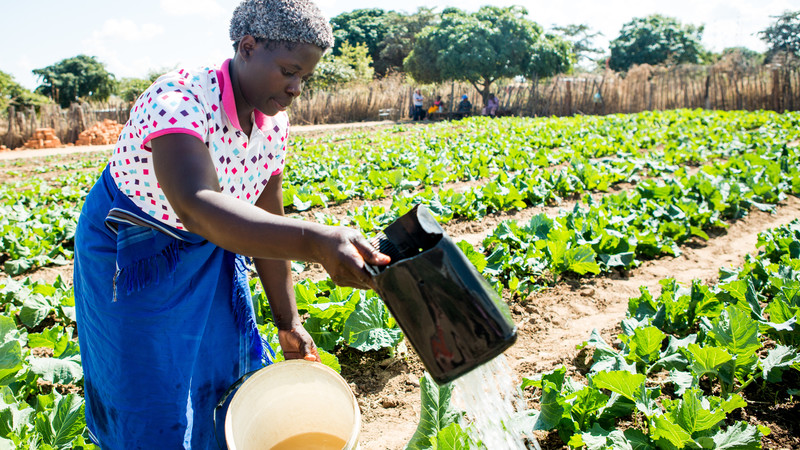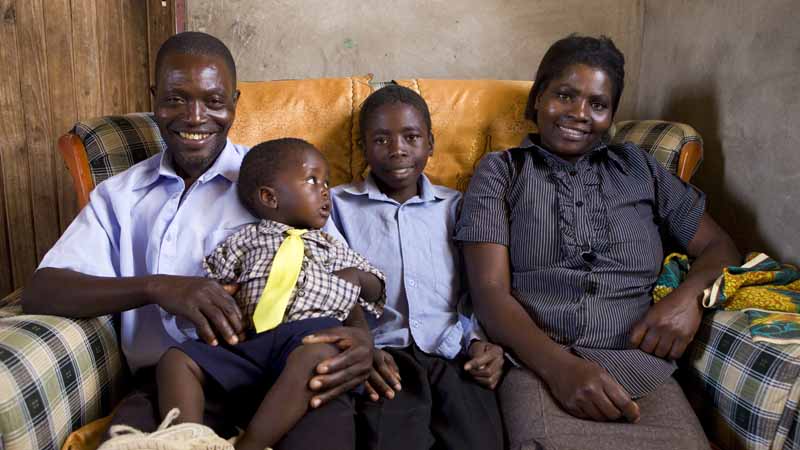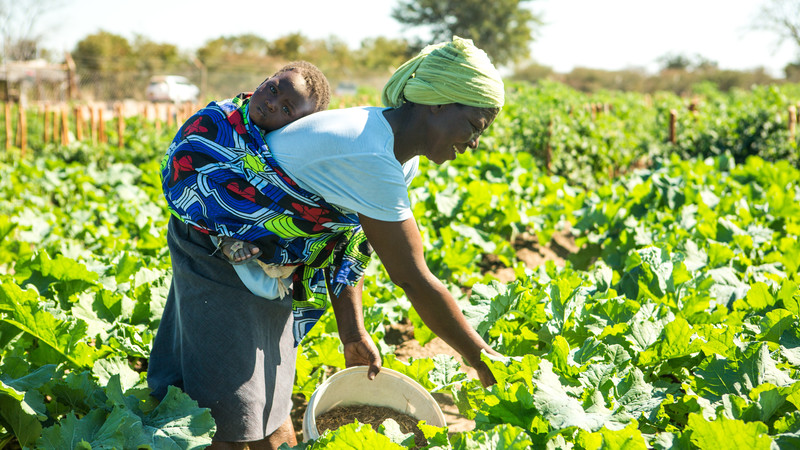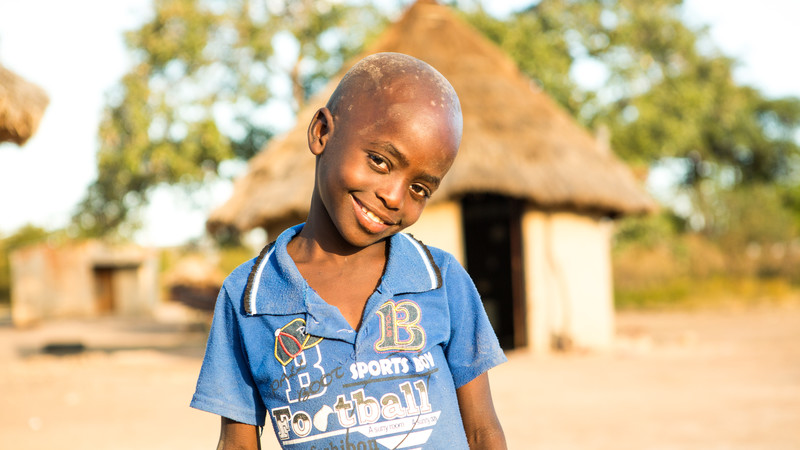Can £28 really stop a family going hungry?

Sally Kitchener, from CAFOD’s communications team, recently visited Zimbabwe. She tells us how hearing a mother’s story about hunger affected her. She also shares some good news about vegetable gardens and invites you to help tackle malnutrition by donating to the CAFOD Lent Appeal.
A few months ago, I met Marian Magumise in her home in rural Zimbabwe. After packing the children off to school just after dawn, Marian invited me to sit in her cooking hut. The embers from the fire were still warm and the smell of porridge hung in the air.
Marian told me that she hasn’t always been able to give her children a meal before school. In fact, there have been countless times – months on end – when she has had not an oat or a grain to feed them.
“There were times when I had to leave my oldest son Tawanda in the morning to find work,” Marian remembered.

“I’d come back in the afternoon and I’d find him still sitting in the same place. He hadn’t played, or even walked. It was very painful to see him like that.”
“I had no strength and no power in my own body. And I thought, if I’m feeling hungry, what about my children? It must be worse for them.”
The cruelty of hunger
The image of this listless seven-year-old boy has stayed with me. In some ways it has haunted me – a reminder of just how cruel and precarious life without food can really be.
Going hungry affects all members of a community, but pregnant women and young children are particularly at risk. When a child like Tawanda repeatedly goes without enough food, everyday infections and diseases become much harder to fight off, and can be life-threatening.
It’s infections like these that will kill around 300 children in the next hour. A terrifying statistic.
A vegetable garden – the key to a healthy childhood
Tawanda survived. And Marian explained to me how her local Church heard about the struggles the family were facing and decided to help.
With funding from CAFOD, the Church provided Marian with seeds to plant a vegetable garden and provided farming workshops for the whole village – helping them to set up their own community garden.

After years of advice and support, what began with a small plot and some seeds is now a thriving community vegetable garden supporting 47 local families like Marian’s.
Some families come to the garden as early as 3am to begin watering their vegetables. But the hard work is paying off and life for Marian’s family is now virtually unrecognisable from the days of Tawanda’s childhood.
Now 21 years old, Tawanda has his own plot at the vegetable garden and his younger brothers and sisters are benefiting from the good food he and his mum grow.

“My youngest son Svondo was just a baby when the vegetable garden started properly,” Marian explains.
“Svondo has grown up at a different time when we had a variety of vegetables, a variety of fruit. He is now seven years old, and healthier than Tawanda was at that age.”
Good food and happy, healthy children are exactly what projects like these aspire to. And with all donations to CAFOD doubled by the UK Government until 12 May 2018, anything you can give today will make a real difference to another family like Marian’s.
Thank you to everyone who has donated to the Lent Appeal. Your gifts will change lives around the world. And if you donated between 13 February and 12 May, the UK Government will double your donation, giving twice the number of children the opportunity to grow up healthy and strong.
Match funding has finished but you can still Donate £28 today –to help to buy the seeds needed for another family like Marian’s to plant a garden full of nutritious vegetables.